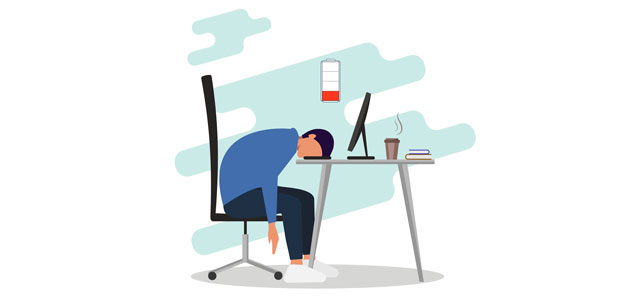
8 things startup employers should know about burnout
Employees are at greater risk than ever of suffering burnout and employers should consider putting in place preventative and curative measures. For startup employers in particular it is important to look at tackling burnout in a sustainable way, eradicating the factors and issues before they take hold.
1. What is burnout?
Burnout is mental, emotional and physical exhaustion related specifically to the workplace as a result of persistent, long-term stress.
2. Effect on startups
The past year has been incredibly tough for everyone. With the effects being cumulative, for some people they may only just be beginning to show. For smaller companies, any absences will be harder to manage, with fewer employees available to provide cover for absent staff.
With the pressures of a new business, employees within startups may be more likely to struggle on through mental and physical illness, putting them at greater risk of burnout.
3. How COVID-19 is increasing burnout
The whole situation surrounding COVID-19 carries an increased risk of employees reaching burnout. The move to flexible working would have seemed positive to some at first, but for others working remotely, from home, under different circumstances, or during different hours, brings a new level of anxiety.
Added to this is the concern about future employment and generally having to juggle more demands. The work-life balance is lost for many, as work becomes a more integral part of life and the boundaries become significantly blurred. What began for many as working from home, has now become living at work.
4. How employers can help
It is crucial that prevention and intervention are part of the company’s health and wellbeing programme, and there are many options to ensure employees are directed to or given the right support. Now is the time for employers to ensure they have everything in place to offer employees the support they need, and clearly communicate it or risk burnout.
5. Options available
Health and wellbeing solutions have been ramped up in light of COVID-19 and startups need to be aware of what is available and make provisions for their workforce, such as:
- Virtual GPs - available standalone or increasingly included as standard within health and protection benefits
- Online mental health counselling support services
- Stress intervention and management support
- Mood-tracking apps
- Health education apps
- Online/remote health assessments and screening options
- Wellbeing and lifestyle guidance, webinars and workshops
- Mental health first aid training and support
6. Moving fast
It is important to assist with preventing burnout and minimise the impact it has on an individual by quickly recognising the signs and providing interventions and support as soon as possible.
7. Minimising the risk
We all have down days, but burnout is a consequence of on-going, long term pressures and it can have a devastating effect. Implementing wellbeing benefits is not the soft option. They tackle a very real problem that affects the company as a whole and not just the individual employee. Putting measures in place now will minimise the risk in the future.
8. Company culture
Burnout may be as much down to the culture of the company as to the way the individual deals with the stresses, so startups must think carefully about what they are offering staff by way of support and in terms of boosting morale, mental health and positivity.

